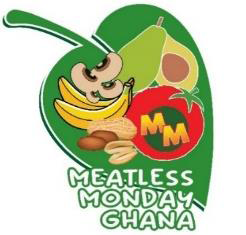Our Power Our Planet
Earth Day and for that matter Earth Month April is a call-to-action, an urgent reminder that the
fate and future of our planet is within our control. The 2025 theme, “Our Power Our Planet”
emphasizes the need to harness our collective power to protect the planet.
Greenhouse gas emissions have reached dangerous levels, threatening our planet and way of life.
We see examples of climate change every day: rising sea levels, hotter temperatures, species
extinction, and an increase in extreme weather conditions and events such as the extraordinary
heavy rains causing destruction in various countries. With all these natural disasters unfolding in
front of us, it’s hard to deny that the future is at risk.
While sources of greenhouse gas emissions vary, one of the greatest contributors is the livestock
industry, which alone makes up an estimated 14.5% of all global greenhouse gas emissions from
human activities—more than the entire transportation sector combined. Climate change may
seem like an insurmountable obstacle, but there’s a lot that you can do as an individual — and as
part of a broader community to make the earth happy.
HOW CAN WE MAKE THE EARTH HAPPY?
Meatless Monday offers the following vital suggestions:
- Eat More Sustainable Foods
In 2019, the World Wildlife Foundation identified their top 50 foods for a sustainable future. These foods, which include greens, tubers, nuts, seeds, pulses, mushrooms, and vegetables, are all nutrient-dense and environmentally friendly. This World Earth Month, look through our list of sustainable foods and consider adding some to your shopping cart during your next supermarket run. - Adopt Meatless Monday
Well, this is an easy one. Plant-based eating contributes to healthy, sustainable food
practices. Shifting to a more plant-based diet has the potential to help decrease agricultural land use by as much as 80 percent. Plus, it’s good for your health. Incorporating Meatless Monday into your diet is easy, and it can be a fun way to experiment with new ingredients, cuisines, and cooking techniques. - Cut Food Waste by Making Food Last Longer
Wasted food is the single largest category of material in community landfills, which also produces greenhouse gases contributing to climate change. In Ghana approximately 3.2 million tons of food is either lost or wasted along the supply chain costing about 762 billion Ghana Cedis each year. Storing food in glass containers, buying frozen fruits and vegetables, understanding expiration dates, and freezing leftovers are just a handful of the many things you can do to keep more food out of the trash can. - Compost Your Food Waste
When you don’t compost your food waste, it’s almost always sent to the landfill with the other garbage. The problem is that much of this organic material rots when it isn’t disposed of properly, releasing methane and carbon dioxide in the process. These greenhouse gases trap heat and make the planet warmer. Composting has other benefits as well: it helps control erosion, improves soil health, and contributes to revitalizing local water sources.

“Pray for the Earth,” wrote Pope Francis
June 18, 2015
Reduce meat consumption and eat more plant-based foods on Mondays for a healthier life. Save your life- Save the Environment!





